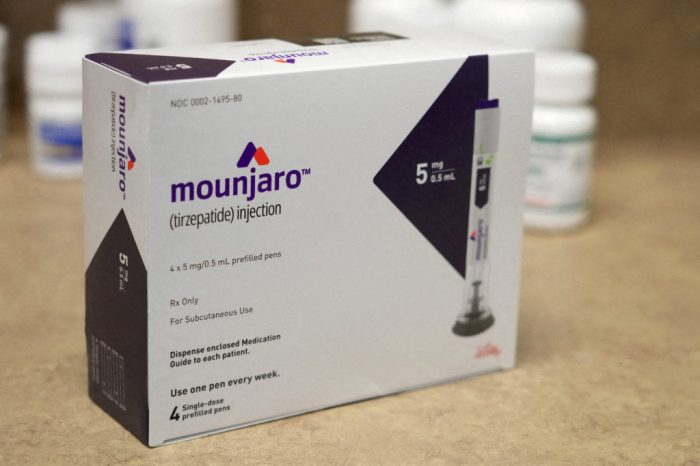Diabetes weight loss drugs are medications specifically designed to help individuals with type 2 diabetes manage their weight and improve their overall health. These drugs work by targeting various pathways involved in appetite regulation, energy expenditure, and glucose metabolism, ultimately leading to weight reduction and better blood sugar control.
This comprehensive guide delves into the world of diabetes weight loss drugs, exploring their mechanisms of action, benefits, risks, and potential impact on lifestyle. We’ll also compare these drugs with other weight loss approaches, examine ethical considerations, and provide valuable resources for patients seeking further information.
Future Directions

The field of diabetes weight loss drugs is rapidly evolving, with ongoing research and development promising new and improved therapies. These advancements hold the potential to revolutionize diabetes management and improve the lives of millions affected by this chronic condition.
Personalized Medicine in Diabetes Management
Personalized medicine is a growing trend in healthcare, aiming to tailor treatments to the individual needs of patients. This approach is particularly relevant for diabetes, as the disease can manifest differently in different individuals.
- Genetic testing can identify individuals at risk for developing diabetes and predict their response to specific medications. This information can be used to personalize treatment plans and prevent the onset of diabetes or slow its progression.
- Pharmacogenomics studies the relationship between an individual’s genetic makeup and their response to medications. This field holds immense promise for tailoring diabetes drug therapy to each patient’s unique genetic profile, ensuring optimal efficacy and minimizing side effects.
Patient Perspectives
The impact of diabetes weight loss drugs on individuals’ lives is a crucial aspect to consider. Understanding how these medications affect their health, lifestyle, and overall well-being provides valuable insights into their real-world application.
Impact on Health and Lifestyle
Patient testimonials offer a diverse range of experiences, highlighting both the positive and challenging aspects of using diabetes weight loss drugs. These experiences underscore the importance of individual patient needs and the need for personalized treatment plans.
- Many patients report significant improvements in their blood sugar control, leading to a reduction in diabetes complications and improved overall health.
- The weight loss achieved through these medications often translates into increased energy levels, improved mobility, and enhanced self-confidence.
- Some individuals find that the medication helps them break free from unhealthy eating habits and adopt a more sustainable lifestyle.
- However, side effects are a common concern, and some patients experience gastrointestinal issues, fatigue, or other challenges.
- The cost of these medications can also be a barrier for some, particularly those without adequate insurance coverage.
Impact on Overall Well-being
Beyond physical health, these drugs can have a profound impact on individuals’ mental and emotional well-being.
- For many, the ability to manage their diabetes effectively and achieve weight loss brings a sense of empowerment and control over their health.
- Reduced risk of complications and improved quality of life can lead to increased self-esteem and a more positive outlook.
- However, some patients may experience anxiety or stress related to potential side effects or the ongoing need for medication.
- The social stigma associated with weight and diabetes can also be a source of emotional distress for some individuals.
Key Takeaways from Patient Testimonials
Patient testimonials provide valuable insights into the lived experiences of individuals using diabetes weight loss drugs.
- These medications can be highly effective in managing diabetes and promoting weight loss, leading to significant improvements in health and well-being.
- However, it is essential to acknowledge the potential side effects and the importance of individual patient needs and personalized treatment plans.
- The cost of these medications can be a barrier for some, and access to affordable care is crucial.
- The impact on mental and emotional well-being should be considered, and support systems should be available for patients who experience challenges.
Ethical Considerations

The development and use of diabetes weight loss drugs raise significant ethical considerations. These medications hold immense potential for improving the lives of individuals struggling with obesity and diabetes, but it’s crucial to navigate their use responsibly and ethically.
Potential for Misuse and Responsible Prescribing
The potential for misuse of these drugs is a significant concern. While these medications can be incredibly beneficial for individuals with diabetes and obesity, their accessibility and marketing efforts could lead to their use by individuals without appropriate medical conditions.
- Increased Demand and Accessibility: The high demand for these drugs could lead to their availability through less regulated channels, potentially increasing the risk of misuse.
- Marketing and Promotion: Aggressive marketing campaigns might target individuals without genuine medical need, promoting unrealistic expectations and encouraging unhealthy reliance on medications.
- Long-Term Health Effects: Misuse of these drugs could lead to unforeseen long-term health consequences, potentially exacerbating existing conditions or creating new ones.
It’s crucial to ensure responsible prescribing practices. This involves a thorough assessment of each patient’s individual needs, including their medical history, current medications, and lifestyle factors.
Physicians should prioritize patient well-being and prescribe these medications only when clinically indicated.
Informed Consent and Patient Autonomy, Diabetes weight loss drug
Informed consent is paramount in the ethical use of these drugs. Patients must be provided with comprehensive information about the risks, benefits, and potential side effects of these medications.
- Transparency and Disclosure: Physicians should be transparent about the potential risks and limitations of these drugs, including the possibility of side effects and the need for ongoing monitoring.
- Understanding Patient Needs: Physicians should understand and address individual patient concerns and preferences, ensuring that the decision to use these medications aligns with their personal values and goals.
- Shared Decision-Making: Patients should be actively involved in the decision-making process, having the opportunity to ask questions, express concerns, and weigh the potential benefits against the risks.
Informed consent empowers patients to make informed choices about their health and treatment, fostering patient autonomy and respecting their right to self-determination.
Resources and Support: Diabetes Weight Loss Drug

Navigating the world of diabetes weight loss drugs can feel overwhelming. This section provides a comprehensive guide to reputable resources and support systems that can empower you on your journey.
Reputable Resources for Information
Gaining accurate and reliable information is crucial for making informed decisions about diabetes weight loss drugs. Here are some trusted sources:
- American Diabetes Association (ADA): The ADA offers a wealth of information on diabetes management, including weight loss strategies, medications, and clinical trials. You can access their website, attend their educational programs, or contact their helpline for personalized support.
- National Institute of Diabetes and Digestive and Kidney Diseases (NIDDK): The NIDDK is a leading source of research and information on diabetes. Their website provides comprehensive information on diabetes, including weight loss drugs, their effectiveness, and potential side effects.
- Food and Drug Administration (FDA): The FDA regulates the safety and effectiveness of medications, including diabetes weight loss drugs. Their website provides information on approved medications, their potential risks, and ongoing research.
Support Groups and Online Communities
Connecting with others who share similar experiences can be incredibly valuable. Support groups and online communities offer a space to share your journey, seek advice, and find encouragement.
- Diabetes Online Communities: Numerous online forums and groups dedicated to diabetes management exist. These platforms provide a space for people with diabetes to connect, share experiences, and support each other.
- Weight Loss Support Groups: Many local and online support groups focus on weight management, offering guidance, motivation, and accountability. These groups can be particularly helpful for individuals navigating the challenges of weight loss associated with diabetes.
Resource Directory
| Resource | Type | Description | Contact Information |
|---|---|---|---|
| American Diabetes Association (ADA) | National Organization | Provides comprehensive information on diabetes management, including weight loss strategies, medications, and clinical trials. | www.diabetes.org |
| National Institute of Diabetes and Digestive and Kidney Diseases (NIDDK) | Government Agency | Offers research and information on diabetes, including weight loss drugs, their effectiveness, and potential side effects. | www.niddk.nih.gov |
| Food and Drug Administration (FDA) | Government Agency | Regulates the safety and effectiveness of medications, including diabetes weight loss drugs. | www.fda.gov |
| Diabetes Online Communities | Online Support | Provides a space for people with diabetes to connect, share experiences, and support each other. | Various online forums and groups |
| Weight Loss Support Groups | Local and Online | Offers guidance, motivation, and accountability for individuals navigating weight loss associated with diabetes. | Various local and online groups |
As the field of diabetes weight loss drugs continues to evolve, personalized medicine holds great promise for tailoring treatment plans to individual needs and achieving optimal outcomes. With a deeper understanding of these medications, patients can make informed decisions about their weight management journey and work collaboratively with healthcare professionals to achieve lasting improvements in their health and well-being.
Diabetes weight loss drugs are becoming increasingly popular, and some, like semaglutide, have shown promising results. However, it’s important to note that these medications can have side effects, including potential electrolyte imbalances. One class of drugs that can help manage these imbalances are potassium sparing diuretics , which can help retain potassium levels. It’s essential to discuss any potential side effects and management strategies with your healthcare provider when considering diabetes weight loss drugs.